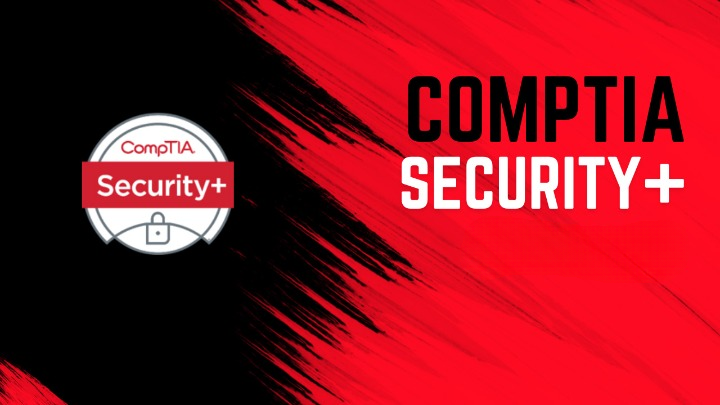Kickstart Your Cybersecurity Career with the CompTIA Security+ Certification
- nytcc1
- Aug 22, 2025
- 3 min read

In today’s digital age, cyber threats are becoming more sophisticated, and organizations need skilled professionals who can protect their networks, systems, and data. The CompTIA Security+ Certification is one of the most recognized entry-level credentials in the cybersecurity world, designed to validate essential skills and knowledge for IT security professionals. Whether you’re just starting out or looking to advance your career, this certification can be the stepping stone to a successful future in cybersecurity.
1. What Is the CompTIA Security+ Certification?
The CompTIA Security+ Certification is a globally recognized, vendor-neutral credential that validates your ability to identify, assess, and mitigate security risks. It covers both technical and practical aspects of cybersecurity, ensuring you’re ready to handle real-world challenges. It is often considered the first certification aspiring security professionals should earn because it lays the foundation for more advanced credentials.
2. Why It’s a Must-Have for Cybersecurity Professionals
Industry Recognition – Employers around the world trust the CompTIA Security+ Certification as proof of your foundational security skills.
Practical Relevance – The exam features performance-based questions that simulate real-world security issues.
Government and Industry Compliance – Many organizations, including government agencies, list Security+ as a job requirement.
Career Growth Potential – It opens doors to job roles like Security Analyst, Systems Administrator, and IT Auditor.
3. Exam Structure and Domains Covered
The current version of the exam focuses on modern security challenges, including cloud computing, hybrid environments, automation, and zero-trust architecture. The test typically includes up to 90 multiple-choice and performance-based questions, which must be completed in 90 minutes. Key domains include:
Security Concepts – Basic principles, controls, and frameworks.
Threats and Vulnerabilities – Malware, phishing, insider threats, and emerging attack vectors.
Security Architecture – Secure network design and implementation.
Security Operations – Monitoring, incident response, and disaster recovery.
Governance, Risk, and Compliance – Policies, legal requirements, and best practices.
4. Skills You Will Gain
By earning the CompTIA Security+ Certification, you’ll develop a broad set of skills, including:
Identifying and mitigating various types of cyber threats.
Implementing secure network architecture and protocols.
Applying encryption and cryptography to secure communications.
Performing risk analysis and developing security policies.
Managing incident responses and disaster recovery plans.
Using automation and scripting to improve security operations.
5. Career Opportunities After Certification
Once certified, you can qualify for roles such as:
Security Specialist – Focuses on protecting systems and networks.
Security Administrator – Manages and maintains security measures.
Systems Administrator – Oversees secure system configurations.
Help Desk Analyst (with a security focus) – Supports users while maintaining security standards.
IT Auditor – Evaluates security controls and compliance.
These roles often serve as a stepping stone to higher positions like Cybersecurity Engineer or Penetration Tester.
6. Salary Expectations
Professionals with the CompTIA Security+ Certification often enjoy competitive salaries. While pay varies by location and experience, entry-level positions can start around $60,000 annually, with more experienced professionals earning $90,000 or more. Government positions and specialized industries like finance or healthcare may offer even higher pay.
7. How to Prepare for the Exam
Preparing for the CompTIA Security+ Certification requires a mix of theoretical learning and practical application. Here’s a roadmap:
Understand the Exam Objectives – Study the domains and weight distribution.
Use Study Guides – Books and online resources tailored to the latest exam version.
Practice with Labs – Simulated environments to apply concepts.
Take Practice Tests – Identify knowledge gaps and track your progress.
Join Study Groups – Collaborate with peers for motivation and knowledge sharing.
8. Certification Maintenance
The certification is valid for three years. To maintain it, you can earn Continuing Education Units (CEUs) through activities such as attending workshops, completing courses, or earning additional certifications. Alternatively, you can retake the latest version of the exam.
9. Advancing Beyond Security+
Once you have the CompTIA Security+ Certification, you can pursue more specialized certifications such as:
CompTIA CySA+ – Focuses on cybersecurity analytics and defense.
CompTIA PenTest+ – Concentrates on offensive security and penetration testing.
Advanced Security Practitioner – Targets senior security professionals.
Pairing Security+ with other vendor-specific certifications like Cisco’s CCNA Security or Microsoft Security certifications can further strengthen your profile.
10. Why Now Is the Best Time to Get Certified
The demand for cybersecurity professionals is growing rapidly, with millions of unfilled positions worldwide. Companies of all sizes need experts to protect their assets and data. By earning the CompTIA Security+ Certification now, you position yourself to take advantage of this demand and secure a future-proof career.
Conclusion
The CompTIA Security+ Certification is more than just a credential—it’s a gateway to the fast-growing and ever-evolving field of cybersecurity. It provides the essential skills, credibility, and confidence to take on entry-level to mid-level security roles. Whether you’re starting fresh in IT or looking to specialize in cybersecurity, this certification equips you with the tools to succeed. If you’re serious about your future in tech security, this is the perfect place to start.



Comments